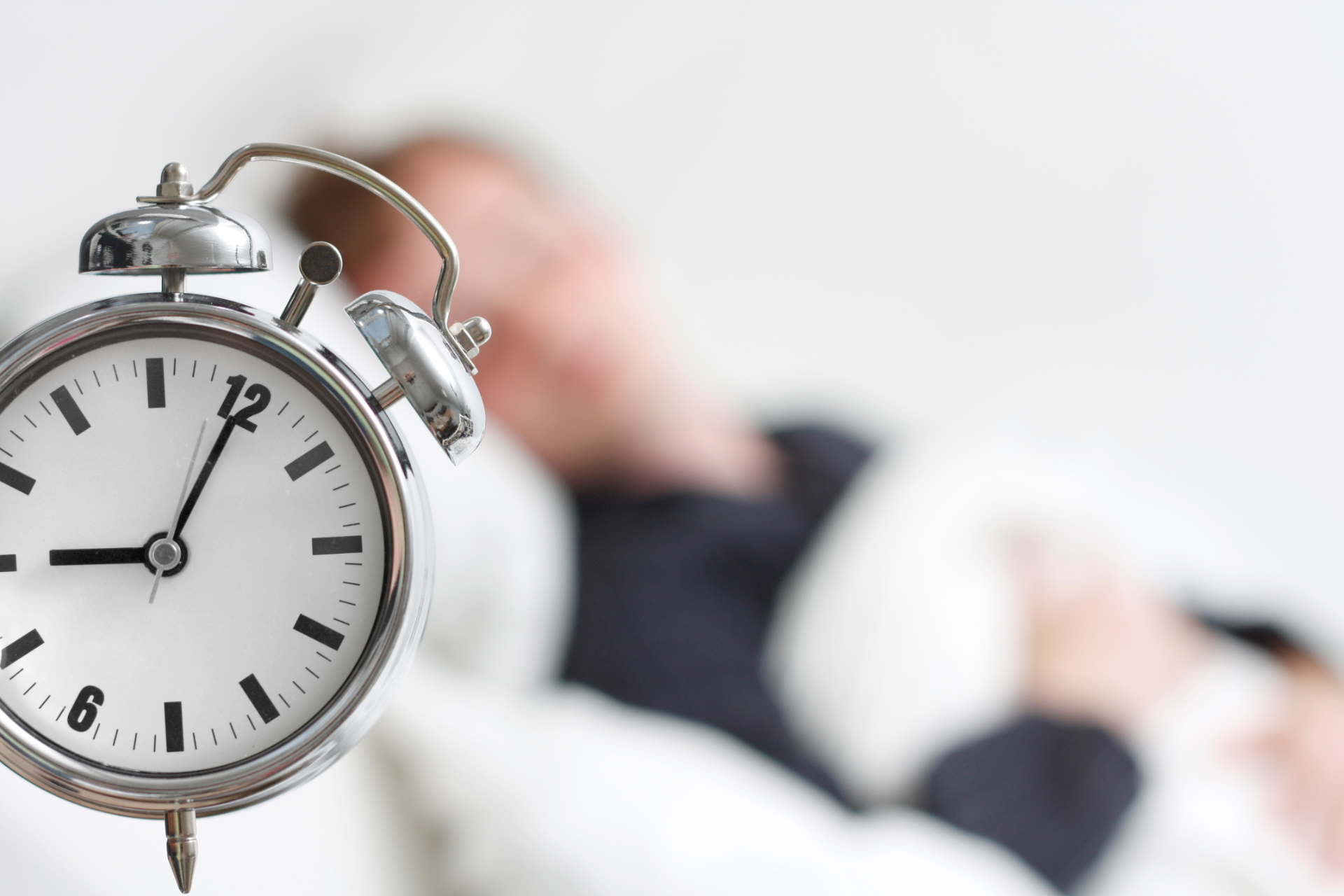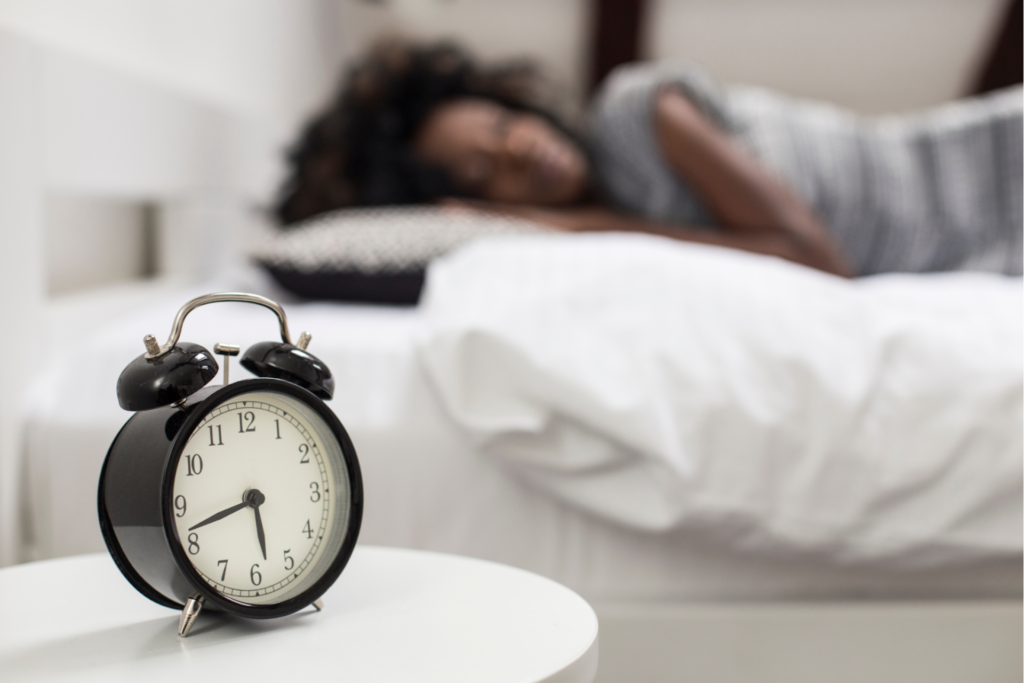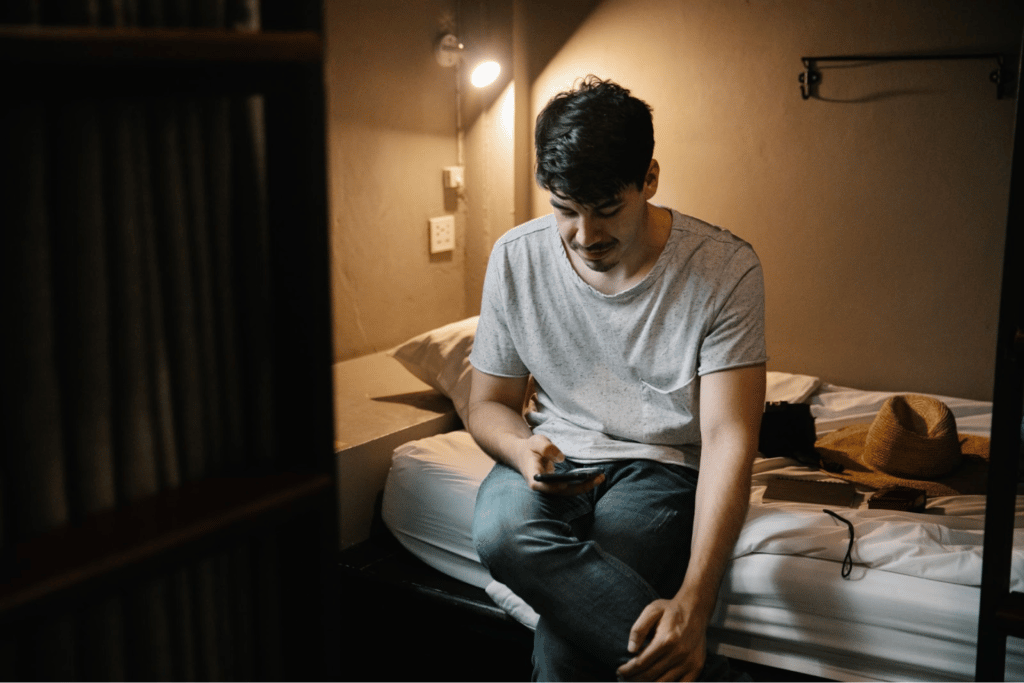“How long should it take to fall asleep” is a question we likely ask ourselves after we’ve already been lying awake for what feels like an eternity.
How often does this happen to you? You’ve just finished getting ready for bed, and you’ve finally slipped between the covers for some much-needed shut-eye. You close your eyes as you prepare to drift off, and… nothing happens. You find yourself lying awake, staring at the ceiling, asking yourself if this is normal.
It’s frustrating to spend so much time waiting to fall asleep, and it can take a serious toll on your sleep health too. So how long should it take to fall asleep each night?
Like many things, you want to follow the Goldilocks Principle here— not too much, not too little, just right. You want to be able to fall asleep within just the right window of time, and with the right sleep habits, you can.
How Long Should It Take to Fall Asleep?
The time it takes to fall asleep, also known as sleep latency, can vary from person to person. Most people need between ten and twenty minutes to fall asleep.
As a general rule, if you wake up in the morning feeling rested, you’re probably falling asleep in just the right amount of time.
However, if you take 30 minutes or more to fall asleep, it’s a sign that something may be wrong.
Reasons You May Not Be Able to Fall Asleep
You may be struggling to fall asleep for a variety of reasons, ranging from underlying health problems to poor sleep hygiene.
Some of these reasons include:
- Sleep disorders like insomnia or obstructive sleep apnea
- Poor sleep hygiene, or bad habits before bedtime that can prevent you from getting a good night’s sleep
- An inconsistent sleep schedule
- Getting too much sleep
- Going to bed before you’re tired
- Nighttime health problems like restless legs syndrome or GERD that prevent you from falling asleep
Related: Why You Should Go to Bed Before Midnight
Can You Fall Asleep Too Quickly?
Falling asleep faster than five minutes may be normal for some people. As long as you wake up feeling rested after that, then you don’t need to worry.
However, if you fall asleep quickly and don’t feel rested in the morning, that’s a sign of sleep deprivation. Falling asleep too readily indicates that your body severely lacks adequate rest or good sleep quality.
Most Americans have sleep debt caused by short sleep duration or poor sleep quality. Just like financial debt, sleep debt can be extremely easy to accumulate, and difficult to get rid of because the only way to reverse sleep debt is to get a good night’s sleep.
But how can you eliminate sleep debt if you’re struggling to fall asleep each night? Don’t worry, it’s possible. And it’s much easier than you might think.
How to Fall Asleep Fast (But Not Too Fast)
For many people, the default treatment for sleep problems are solutions like taking a melatonin supplement, an over-the-counter sleeping pill, or even prescription sleeping pills.
However, you shouldn’t need to rely on supplements or prescriptions for better sleep. Here are five solutions you can try for healthier sleep onset and better nighttime sleep.
#1: Avoid Blue Light Before Bed
Electronic devices like smartphones, tablets, televisions, and computers have become important fixtures in our daily lives. However, the blue light emitted from these devices can make it harder for you to fall asleep on time. Blue light suppresses your body’s release of melatonin, a hormone your body releases to help you get to sleep.
Blue light is important in regulating your circadian rhythm by boosting your alertness and mental sharpness. This is great for getting rid of morning brain fog, but excessive exposure to blue light can hinder your ability to fall asleep at bedtime.
To avoid this, stop using your electronic devices at least one hour before bedtime. Alternatively, you can use blue light-blocking glasses or screen filters to reduce the amount of blue light that reaches your eyes. We recommend those from Occushield or Swanwick Sleep.
#2: Turn Down the Thermostat
Your body regulates its own temperature thanks to a process called thermoregulation. The ideal temperature for sleep is between 60 and 67 degrees Fahrenheit for most people.
A cooler ambient temperature helps your body increase its melatonin production and enables you to fall asleep and stay asleep more readily.
What if you and your sleep partner disagree on where to set the thermostat? We recommend the ChiliSleep system. These mattress pads use cooled or warmed circulated water to help you create your perfect sleep temperature, whether you sleep hot or cold.
#3: Try Relaxation Techniques
Allowing yourself enough time to relax each evening is extremely important for getting a good night’s sleep. An excellent way to unwind is to dedicate time to practicing relaxation techniques.
Basically, these are activities that are intended to help you relax. Here are a few of our favorite techniques that we recommend:
- Write in a sleep journal
- Practice meditation or yoga nidra
- Breathing techniques, such as the 4-7-8 Technique [1]
- Listen to peaceful music
#4: Follow a Consistent Sleep Schedule
Creating a consistent sleep schedule (and sticking to it) is one of the best ways to get a good night’s sleep every night. This means sleeping at the same time every night and waking up at the same time every morning, even on the weekends!
Not only is a consistent sleep schedule important for your sleep health, but it can also help prevent health problems like heart disease, hypertension, and high cholesterol. [2]
#5: Exercise
Regular, moderate exercise is the key to a healthy life. It’s very important for getting healthy sleep too.
Just be careful not to exercise too close to bedtime— your body will still be calming down from your workout and will be too fired up to sleep!
For exercise to help you get a good night’s sleep, make sure you finish exercising at least one hour before bedtime.
Falling Asleep With Sleep Apnea
If you have obstructive sleep apnea, you’re probably familiar with how the disorder can ruin a good night’s sleep. As it turns out, sleep apnea can make it harder for you to fall asleep too.
Sleep apnea can cause insomnia due to your body trying to prevent apneas or hypopneas while you sleep. Basically, your brain will inhibit your ability to fall asleep to help you avoid the breathing cessation that makes sleep apnea so serious.
People with insomnia also tend to have undiagnosed sleep apnea or other breathing difficulties at night. These can cause them to wake up during the night, restarting the cycle of not being able to fall asleep or stay asleep.
Insomnia and obstructive sleep apnea occur together frequently, so it’s essential to treat both conditions, not just one of them. [3]
The tips we shared above can help treat insomnia, but you’ll need additional treatment if you have sleep apnea. The best option would be CPAP, or continuous positive airway pressure, therapy. CPAP therapy will prevent the breathing difficulties that can disrupt your sleep, helping you sleep through the night and wake up feeling refreshed.
Don’t Lose Sleep Worrying About the Clock
We’ve all had nights where falling asleep was much easier said than done. Falling asleep on time is key to a good night’s sleep and assuring you wake up feeling rested and refreshed.
Taking too long can be a sign of sleep problems— and so can falling asleep too quickly. If it takes you more than half an hour to doze off, or if you fall asleep the second you hit the mattress, you may need to consult an expert.
There are easy ways for you to help yourself fall asleep more readily, but if these options don’t work, contact us at the Sleep Centers of Middle Tennessee today to schedule a consultation.
A sleep specialist can help you make sense of your symptoms, and may recommend an overnight sleep study to see if a sleep disorder is causing your poor sleep.
Sleep disorders won’t go away on their own. Contact us and get back to being fast asleep, fast.
References
- Gotter, Ana. “4-7-8 Breathing: How It Works, How to Do It, and More.” Healthline, Healthline Media, 20 Apr. 2018, www.healthline.com/health/4-7-8-breathing.
- Creveling, Mallory. “How Important Is Sticking to a Sleep Schedule, Really?” Sleep.com, Sleep.com, 10 May 2021, www.sleep.com/sleep-health/sleep-schedule.
- Ong, Jason C, and Megan R Crawford. “Insomnia and Obstructive Sleep Apnea.” U.S. National Library of Medicine, Sleep Medicine Clinics, 1 Sept. 2013, www.ncbi.nlm.nih.gov/pmc/articles/PMC3763954/.




